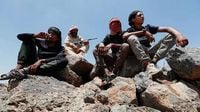On Friday, August 8, 2025, a remarkable gathering unfolded in Hassakeh, a northeastern Syrian city under the control of the Kurdish-led and U.S.-backed Syrian Democratic Forces (SDF). Nearly 400 representatives from Syria’s diverse ethnic and religious minorities came together for a one-day conference, united by a shared vision: to forge a decentralized state and draft a new constitution that guarantees religious, cultural, and ethnic pluralism for all Syrians.
This conference, held against the backdrop of a nation still reeling from the December 2024 fall of President Bashar al-Assad and his family dynasty, marked a pivotal moment in Syria’s ongoing political transition. The roadmap ahead is daunting—elections are scheduled for September 2025, and the process of drafting a new constitution could stretch on for years. Yet, for those who gathered in Hassakeh, the urgency of their demands was clear. The transition has been marred by violence, particularly targeting minorities, which has only deepened the sense of vulnerability among Syria’s Alawite, Druze, and Christian communities.
According to Associated Press, the representatives at the conference did not mince words. They condemned recent acts of violence by pro-government gunmen against minorities, labeling these attacks as crimes against humanity. The violence, which has claimed hundreds of lives since Assad’s ouster, has sent shockwaves throughout the country and raised fears about the future of Syria’s rich tapestry of communities.
Ghazal Ghazal, the spiritual leader of Syria’s Alawite minority—a group to which the Assad family belongs—addressed the assembly with a direct call for systemic change. “Extremist ideology in Syria is imposing its will on Syrians in the name of religion and killing minorities,” Ghazal warned, as reported by Reuters. He advocated for the establishment of a decentralized or federal system in Syria, one that would protect the religious and cultural rights of all components of the Syrian people. For Ghazal and many others in attendance, decentralization was not just a political preference, but a matter of survival and justice.
The sense of solidarity and hope was echoed by Elham Ahmad, a senior official with the autonomous administration in northeast Syria. “This conference sends a message of civil peace and national reconciliation,” Ahmad stated, expressing her aspiration for a Syria rebuilt on cultural and ethnic pluralism. Her words, reported by Al Jazeera, struck a chord with the attendees, many of whom have long felt marginalized under centralized rule.
But it wasn’t just the future that weighed heavily on the minds of those gathered. The recent past, especially the months since Assad’s fall, has been fraught with danger. Despite pledges from interim President Ahmad al-Sharaa—a former leader of al-Qaida’s branch in Syria—that all Syrians would be treated equally, violence against minorities has continued unabated. The interim government’s silence on the conference was palpable; as BBC noted, officials in Damascus offered no comment on the event or its demands.
Hakemat Habib, one of the conference organizers, spoke candidly about the failures of Syria’s past governments. “Central governments and ‘tyrannical regimes’ over the past decades have failed,” Habib declared. “A democratic and decentralized state agreed upon by all Syrians is the only way to move forward.” He emphasized that “Syrian identity includes all Syrians,” underscoring the inclusive vision that many at the conference shared.
The call for pluralism was further reinforced by Druze spiritual leader Sheikh Hikmat Al-Hijri, whose fighters had clashed with pro-government gunmen as recently as July 2025. In a televised speech to the conference, Al-Hijri stated, “Pluralism is not a threat but a treasure that strengthens unity.” His remarks, broadcast widely and cited by The Guardian, captured the prevailing sentiment: diversity should be safeguarded, not feared.
Yet, the road to a decentralized and pluralistic Syria is anything but straightforward. The SDF, a key military and political force in the northeast, has found itself at odds with the interim government in Damascus. Sipan Hamo, a top commander with the SDF, was blunt in his criticism of interim President al-Sharaa’s administration. “The SDF wants to join the national army but the al-Sharaa’s government is not giving hope for a democratic state,” Hamo said in an interview with a local media outlet. He accused the interim government of perpetuating Syria’s decades-old “dictatorship,” a charge that resonated with many who have suffered under authoritarian rule.
The absence of a response from Damascus was telling. The interim government’s reluctance to engage with the demands of minorities—and its silence in the face of continued violence—has only fueled calls for greater autonomy and protection. For the minorities represented at the Hassakeh conference, the stakes could not be higher. The memory of past atrocities lingers, and the fear of renewed persecution is ever-present.
The conference was not merely a forum for grievances; it was a demonstration of unity and resolve. Representatives from across Syria’s ethnic and religious spectrum—Alawites, Druze, Christians, Kurds, and others—stood together to demand a seat at the table in shaping the country’s future. Their call for a decentralized state is rooted in the conviction that only by sharing power and embracing pluralism can Syria hope to heal its wounds and avoid repeating the mistakes of the past.
Looking ahead, the path to a new constitution and a decentralized political system will require negotiation, compromise, and, above all, a willingness to listen to the voices of those who have too often been sidelined. The elections scheduled for September 2025 will be a crucial test of whether Syria’s interim authorities are prepared to honor the promises of equality and representation. The constitution-drafting process, expected to take years, will likewise determine whether the vision articulated in Hassakeh becomes reality or remains an unfulfilled aspiration.
In the meantime, the message from Hassakeh is clear: Syria’s minorities are determined to play an active role in the country’s transformation. Their demands for decentralization and constitutional guarantees of pluralism are not just political slogans—they are a blueprint for survival, justice, and a more inclusive future. As the world watches, the resilience and unity displayed at the conference offer a glimmer of hope for a nation long scarred by conflict and division.
For now, the voices from Hassakeh ring out as both a warning and a promise: Syria’s future must be built on the foundation of pluralism, or it risks repeating the tragedies of its past.


